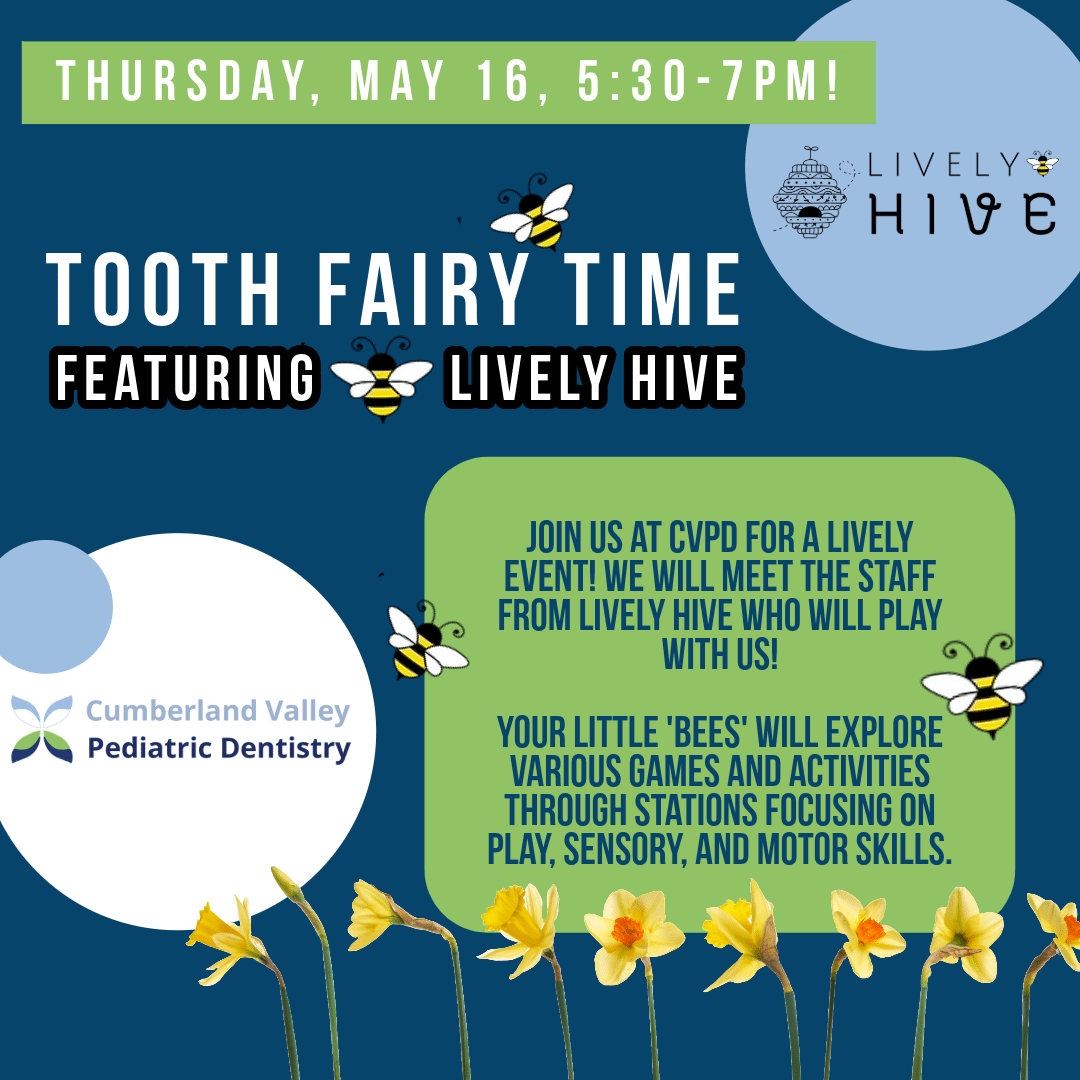As pediatric dentists, we often get asked by concerned parents, “Are thumb-sucking and pacifier habits harmful to my child’s oral health?”
These habits, known as non-nutritive sucking, are common among infants and young children and can provide a sense of comfort and security.
However, prolonged thumb sucking or pacifier use can lead to a narrow jaw, flared teeth, and an open bite.
In this post, we’ll discuss the potential consequences of these habits and provide guidance on how to help your child break them.
When Thumb Sucking and Pacifier Habits Become a Concern
Thumb sucking and pacifier use are generally not a cause for concern in infants and young toddlers. In fact, these habits are a natural reflex that can help babies soothe themselves and feel secure. At Cumberland Valley Pediatric Dentistry, we recommend to stop thumb sucking and/or pacifier use by age 2
However, if thumb sucking or pacifier use persists past the age of 2, when permanent teeth begin to erupt, it can lead to several oral health problems, including:
- Misaligned Teeth: Prolonged sucking habits can cause the front teeth to protrude or the bite to become misaligned, leading to an open bite or overbite.
- Narrowed Upper Jaw: Constant pressure from thumb sucking or pacifier use can cause the upper jaw to narrow, resulting in a crossbite.
- Speech Difficulties: Prolonged sucking habits can affect the proper development of the mouth and teeth, which may lead to speech difficulties, such as lisping.
- Increased Risk of Tooth Decay: Pacifiers dipped in sugary substances or prolonged thumb sucking can expose teeth to excess bacteria, increasing the risk of tooth decay.
Helping Your Child Break Thumb Sucking and Pacifier Habits
If your child’s thumb-sucking or pacifier habit persists past the age of 4, it’s essential to take steps to help them break the habit.
Here are some strategies you can try:
- Positive Reinforcement: Praise your child when they refrain from thumb-sucking or pacifier use, and offer rewards for progress made.
- Gentle Reminders: When you notice your child engaging in the habit, gently remind them to stop and offer an alternative comforting activity, such as a stuffed animal or blanket.
- Addressing Underlying Anxiety: Sometimes, sucking habits may be a response to stress or anxiety. Identify any potential sources of stress in your child’s life and work to address them.
- Dental Appliances: In some cases, a pediatric dentist may recommend a dental appliance, such as a thumb guard or palatal crib, to discourage the habit and protect your child’s teeth.
Remember, breaking a habit takes time and patience. Be supportive and understanding of your child’s efforts, and celebrate their progress along the way.
Your Partner in Your Child’s Oral Health
At Valley Pediatric Dentistry, we understand the challenges parents face when addressing thumb-sucking and pacifier habits. Our team of compassionate pediatric dentists is here to provide guidance, support, and treatment options to help your child break these habits and maintain a healthy, beautiful smile.
If you have concerns about your child’s thumb-sucking or pacifier habit, or if you notice any changes in their oral health, please don’t hesitate to schedule an appointment with us. We’re committed to being your partners in your child’s oral health journey, every step of the way.
At Valley Pediatric Dentistry, we have 3 convenient locations in Harrisburg, Camp Hill, and Carlisle.
Don’t wait – schedule an appointment online today!
- August 8, 2024
- Uncategorized


